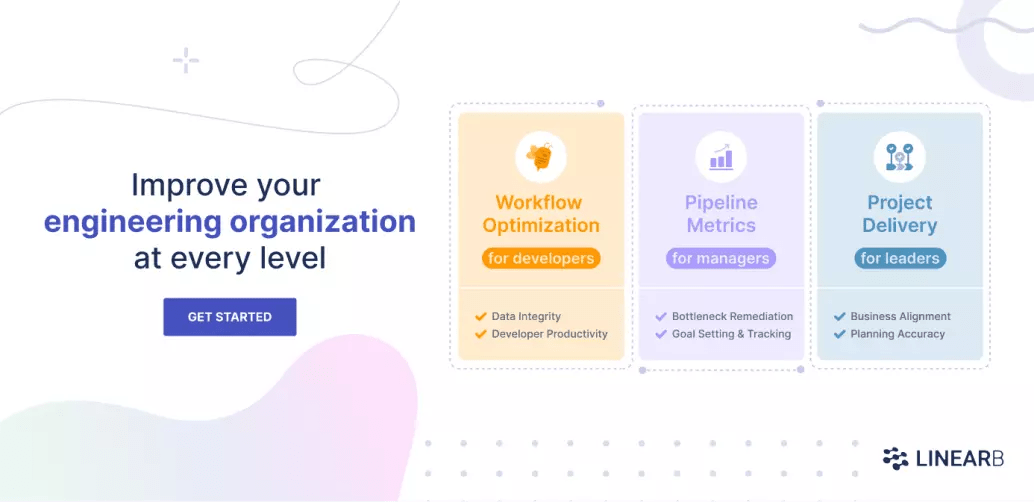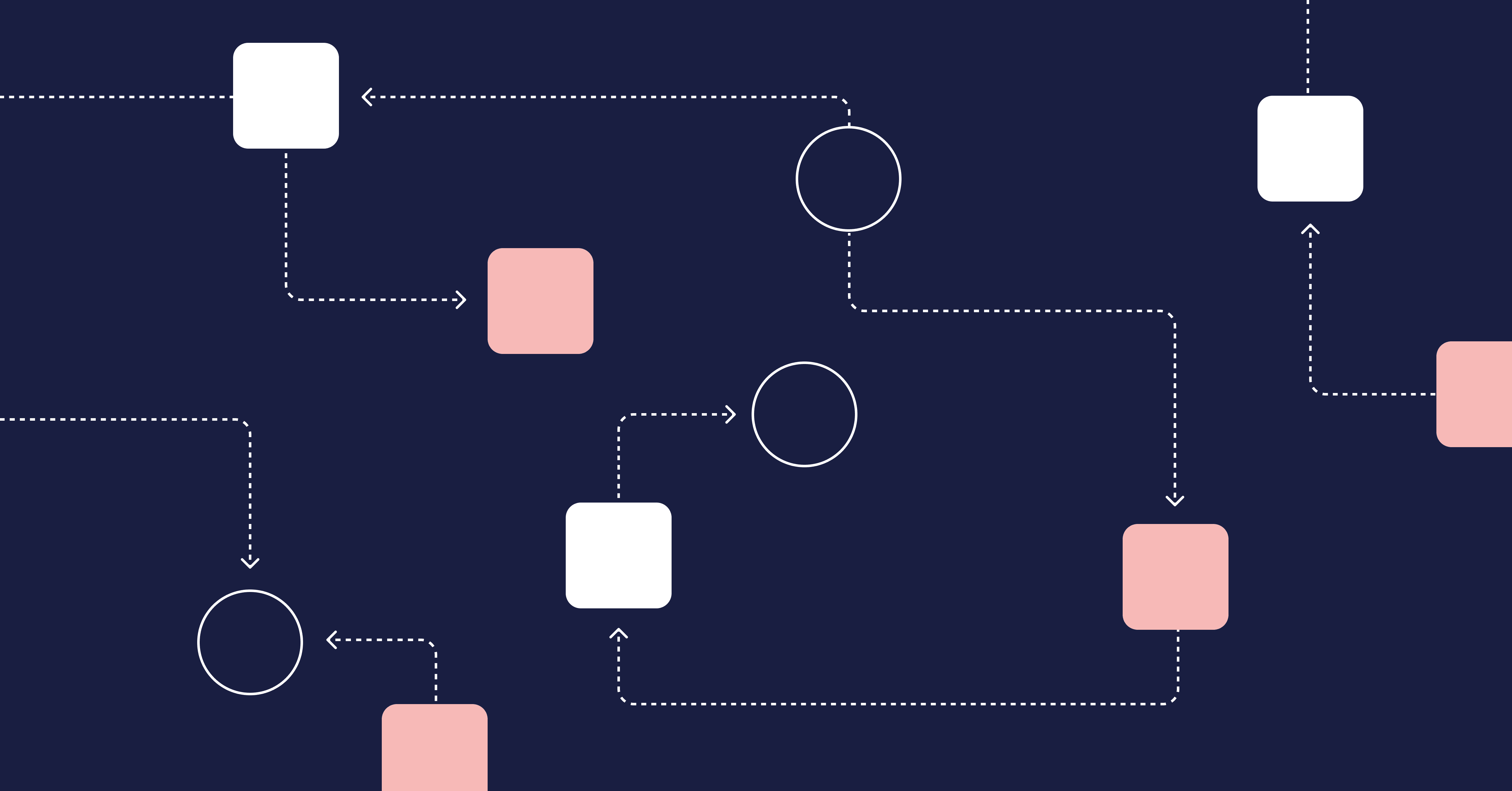More and more people are considering making career pivots. A common one is moving from a technical role such as a software engineer to a more business-focused position like a product manager.
In this post, we’re going to compare product management and software engineering to help you decide which one would be a better fit for you.
Table of Contents
- What Does a Software Engineer Do?
- What Does a Product Manager Do?
- Comparing Career Progressions of a Product Manager versus a Software Engineer
- Comparing Responsibilities
- Comparing the Day-to-Day Work
- Conclusion
What Does a Software Engineer Do?
First and foremost, a software engineer is an engineer. Engineers design, build, and maintain structures and systems. Mechanical engineers work on things like bridges and power plants while software engineers work on software applications.
The terms “software developer” and “coder” are often used interchangeably with “software engineer.” But some people and companies insist on drawing a difference. Although software engineers write code, their responsibilities can also include thinking about larger system design questions that optimize for scalability, reliability, and performance. Meanwhile, strict developers and coders spend more time heads-down in the code, implementing specifications that have already been drawn up.
What Does a Product Manager Do?
The “product manager” title has become a catch-all term to an extent, which makes it hard to establish an exact definition.
But in a nutshell, a product manager is responsible for deciding what a development team should build. Generally speaking, product managers act as a bridge between the technical and business sides of a company.
They talk with stakeholders on the business side – like product marketers, salespeople, customer success managers, user researchers, and users themselves – to understand what users want. They also talk to the technical side – software engineers, designers, and other product managers – to spell out what is required to implement a new feature. With all that information, you then create the product roadmap.
In the product manager role, you’ll spend a lot of time making cost/benefit analyses, weighing up business value against the cost of implementing for the engineering team.
Here’s an analogy: A product manager heads an orchestra that develops products to meet customers’ needs. Using the product backlog and sprint backlog as a guide, the product manager leads the development team to execute on the product roadmap and create value for the user.
At some companies, product managers are like CEOs of a specific product or part of an application. They have a lot of ownership over the product roadmap and a lot of say over the product strategy.
At other companies, product managers are more like project managers. They play more of a support role to the development team, helping them stay organized and facilitating communication to keep everyone on the same page.

Comparing Career Progressions of a Product Manager versus a Software Engineer
Software Engineer
A well-established career progression for software engineers is to ascend in levels of seniority. From entry-level, you can advance to senior level then staff level. Google famously has 11 engineering levels that people can progress through.
Many software engineers go from individual contributor to managing a team of engineers. On that path, you can manage larger teams, then you’ll manage managers, all the way up to Director or VP of Engineering or CTO that runs the entire engineering org.
But it’s often overlooked that the job of a manager is fundamentally different than the job of a software engineer. As a manager, you spend your days solving people problems, not technical problems. Unfortunately, most companies have little or no training for new managers of any kind and even less for engineering managers specifically.
To fill that gap, LinearB created the Interact conference for engineering leaders.

Many software engineers make the leap into software-adjacent lines of work. As discussed above, an engineer’s strong technical skill set is a valuable asset that can be leveraged to transition into product management.
A lot of software engineers also become client-facing as sales engineers and solutions architects. Recently on the Dev Interrupted podcast, Peter Bell, Founder & CTO of CTO Connection, spoke about the draws of becoming a sales engineer:
Product Manager
Product managers can also stay product managers and ascend the levels of seniority. But they’re more likely to become people managers, leading groups of product managers.
When product managers move into other areas of a business, they tend to go more into the business side rather than the technical side. Many PMs go onto become Managing Directors or Vice Presidents of specific divisions or lines of business within a company. In these roles, they oversee the product but also other business functions like marketing, sales, and finance.
Comparing Responsibilities
Software Engineer
- Examine software requirements and design a product-specific roadmap/framework of the software development life cycle (SDLC) that explains the requirements and implementation associated with each stage of the SDLC.
- Write code to develop the underlying software for the product—this involves design, modeling, integration, testing, and quality assurance.
- Maintain and monitor software to ensure proper functioning.
- Evaluate the efficiency and features of the software.
- Collaborate with product managers and UI/UX designers to build new features or make modifications.
- Assist in curating technical specifications and documentation.
Product Manager
- Identify, examine, and collect data and user feedback to create practical and implementable ideas for new features.
- Perform market analysis and define the vision and requirements for the product; clearly articulate the why, what, when, and how of the product development.
- Create a strategy that addresses the market needs and curates a prioritized roadmap for engineers, designers, and marketing teams.
- Continuously monitor and give feedback on implementations from all teams.
- Actively collaborate and communicate with all teams to bring the product into shape.
- Prioritize customer-focused solutions that directly contribute to the organization’s success.
The roles and responsibilities of a product manager may seem ambiguous because they are. This gives you more room to shape the role. On the flip side, it means that you have less structure to support you.
Comparing the Day-to-Day Work
Software Engineer
A software engineer has a relatively specialized and narrowly-scoped job. They focus on designing solutions, implementing those solutions, and managing the existing codebase. Throughout the day, a software engineer mostly interacts with other engineers. They also consult with product managers, designers, or analysts. Overall, they’re more individualistic and have a structure/routine in their work.
Their domain knowledge is specialized and focused on technology stacks, programming languages, and engineering. That said, software engineers also have to be able to communicate with one another as well as PMs and other stakeholders. In other words, an engineers has to be able to operate in a team.
Product Manager
The PM role entails data analysis, strategic planning, collaboration, and execution. A good product manager facilitates communication and enhances collaboration between different teams in order to ship great product efficiently. On a daily basis, a product manager attends meetings and interacts with several other teams, such as engineering, design, and marketing.
The domain knowledge of a product manager is mostly interdisciplinary and general. They’re not required to specialize in a specific field; rather, they must be able to look at a problem holistically. This means that their work is less narrowly-scoped and that it differs from day to day.
Conclusion
As you may expect, the roles of a software engineer and product manager differ with respect to their skills and responsibilities. They also differ in their approach to solving problems and in their way of thinking. Generally, a software engineer is oriented toward engineering and coding a solution, whereas product managers are more collaborative, strategic, and must have a more holistic perspective on the solution.
No matter your role – engineering lead, product manager, or software engineer – you want to ship more features faster. LinearB is a tool that empowers your team to do exactly this. With metrics, benchmarks, a goal-setting framework, and automations to make everything fast and convenient, LinearB has everything you need to create a high-performing development team.
Get in touch with us today to set up a demo!





